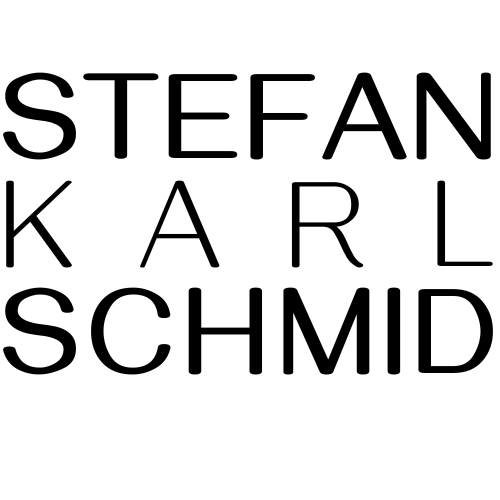I was recently interviewd by the german newspaper “Die Rheinpfalz”. Roland Happersberger asked some good questions I was happy to answer. Here’s an english translation of the original interview:
Jazz saxophonist Stefan Karl Schmid went to school in Grünstadt, is based in Cologne and has recently become a jazz professor in Mannheim. He also recently introduced his new album "Muse".
Mr. Schmid, you are an enthusiastic jazz player, your brother Helgi an actor. Do the artistic genes run in your family?
Our parents and grandparents didn't pursue artistic professions. What was much more decisive for my brother and me was that we were in the privileged and not self-evident situation of being unconditionally supported and encouraged by our parents and thus being able to follow what was close to our hearts.
Did you always want to be a jazz saxophonist?
When I started playing the saxophone at the age of nine, I didn't have the faintest idea about jazz. My teacher at the time, Frank Metzger, at the Bad Dürkheim Music School, gradually introduced me to it, and my later entry into the Rhineland-Palatinate State Youth Jazz Orchestra finally awakened my fascination.
You grew up in Grünstadt and then established yourself in Cologne. Since October of last year, you've been a professor of jazz saxophone at the Mannheim Musikhochschule. A conscious return to the metropolitan region - or more of a coincidence?
That's right, I went to school in Grünstadt. My studies then took me to Nuremberg for five years before I completed master's degrees in Cologne and New York. I have been living in Cologne for over ten years now. The professorship in Mannheim is an absolutely fortunate coincidence, as there are only a few such positions throughout Germany and they are also hard to come by. In this respect, I am very pleased to have more contact with the metropolitan region again.
The layman thinks that the jazz player must above all creatively improvise in response to unexpected musical impulses from his fellow players. How can this be taught?
Jazz and improvisation are like language. There are countless vocabularies, dialects and shades, and all the things that can be found between the lines. The clearer, more varied, and more purposeful I can express myself, and the better I understand all the other ways my counterpart communicates, the more diverse and interactive the conversation. The same is true for improvisation. So on the one hand there is a wide range of craftsmanship and on the other hand there is the search for individual and collective artistic expression. Both aspects can be dealt with, studied and explored on various levels throughout one's life.
What can you do as a music professor in times of pandemic? Is meaningful and successful teaching possible at a distance?
Particularly in the field of those working in the arts, I notice that creative solutions are being found and tested with which meaningful teaching can be possible. Making music together and playing in front of an audience is, of course, sorely lacking. In my opinion, however, in retrospect we will not regard the pandemic as lost time, but will emerge strengthened with many new tools and experiences.
Recently, a year after the album "Pyjama" (released in 2020), the new disc "Muse" came out. Did Corona give you leisure for it?
One could assume so. However, in the reality of work, the production of an album from the first composition to the finished record usually takes more than a year. Hundreds of hours of work go into the process, and numerous people are involved, especially in post-production. Consequently, the music for "Muse" was recorded before the pandemic. In the past months, however, numerous new things have been created, which will be released as early as the beginning of 2022. One can be curious.
What moves you more in your compositions: the intention of working out new, unheard things, or the fun of making music that you like?
As a rule, it's a combination of both. Or to put it another way: it's precisely the working out itself, the unexpected, spontaneous and unpredictable, that is particularly appealing and thus the most fun.
Apart from original compositions, there is an Icelandic folk song on "Muse". Doesn't that have a specific reason?
Yes, I am half Icelander. My mother is Icelandic and we spent a few weeks there almost every year. Unfortunately, I never lived in Iceland for a longer period of time, but the country and its people hold a great fascination for me. For some years now, I have therefore been more intensively involved with Icelandic music. By the way, you will soon be able to hear a lot more of this music.
Interview by: Roland Happersberger for LEO, Rheinpfalz, April 2021

